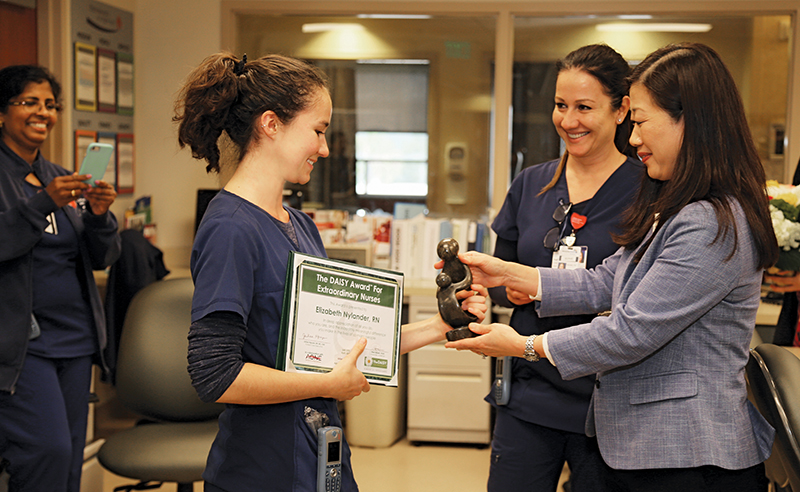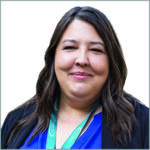CNO Roundtable 2023
Question 6: Advice for Future Leaders
What advice do you have for nurses interested in a leadership career?

Our panelists offer their advice for aspiring nurse leaders, including non-nursing subjects to study and constructive habits to develop early.
 Nancy Blake, LAC+USC Medical Center
Nancy Blake, LAC+USC Medical Center
Early in your employment, you should become familiar with budgeting and healthcare finance. It helped me to have taken courses in finance and human resources management before I became a manager.
Supporting nurses with servant leadership is crucial for nursing leaders. I also believe that being an engaged listener is a habit that people need to develop early if they want to succeed.
 Annabelle Duschane Braun, MemorialCare Orange Coast Medical Center
Annabelle Duschane Braun, MemorialCare Orange Coast Medical Center
The best advice that I can give is to be flexible, practice active listening, build relationships, and stay patient-focused.
I also recommend taking courses on emotional intelligence and leadership skills, with a specific focus on creating high-performance teams. These courses improve self-awareness, self-regulation of emotions, and the ability to motivate and inspire.
 Lori Burnell, Valley Presbyterian Hospital
Lori Burnell, Valley Presbyterian Hospital
Always be present and listen intently to the person in front of you. You should also cultivate adaptability. Especially in the hospital setting, no two days will be alike. Blessed are the flexible!
Taking courses in healthcare finance and accounting, leadership development, and human resources management will help you understand budgets, how to grow the capabilities of others, and how to effectively deal with the challenges of a diverse workforce.
 Gloria Carter, Dignity Health – St. Mary Medical Center
Gloria Carter, Dignity Health – St. Mary Medical Center
Find a mentor, embrace servant leadership, always lead by example, and cultivate a collaborative and inclusive culture. Learn from your challenges, don’t forget self-care, and enjoy the journey.
I would strongly encourage taking communication courses that include interpersonal, organizational, and intercultural communication as well as change management. Also, cultivate habits like setting goals, positive thinking, and challenging yourself to embrace change.
 Anita Girard, Cedars-Sinai
Anita Girard, Cedars-Sinai
Go easy on yourself, develop your own roadmap, and find a mentor who is leading the way you envision yourself leading. Also, learn to step away at the end of the day.


 Karen Grimley, UCLA Health
Karen Grimley, UCLA Health Katie Hughes, Casa Colina Hospital and Centers for Healthcare
Katie Hughes, Casa Colina Hospital and Centers for Healthcare Evelyn Ku, Henry Mayo Newhall Hospital
Evelyn Ku, Henry Mayo Newhall Hospital Joyce Leido, Kaiser Permanente Los Angeles Medical Center
Joyce Leido, Kaiser Permanente Los Angeles Medical Center Deborah McCoy, USC Arcadia Hospital
Deborah McCoy, USC Arcadia Hospital









 Theresa Murphy, USC Verdugo Hills Hospital
Theresa Murphy, USC Verdugo Hills Hospital Jinhee Nguyen, Adventist Health Glendale
Jinhee Nguyen, Adventist Health Glendale Tanya Osborne-McKenzie, MLK Community Healthcare
Tanya Osborne-McKenzie, MLK Community Healthcare Gloria Sanchez-Rico, Huntington Health
Gloria Sanchez-Rico, Huntington Health Dianne Sauco, PIH Health Downey Hospital
Dianne Sauco, PIH Health Downey Hospital Darlene Scafiddi, Pomona Valley Hospital Medical Center
Darlene Scafiddi, Pomona Valley Hospital Medical Center